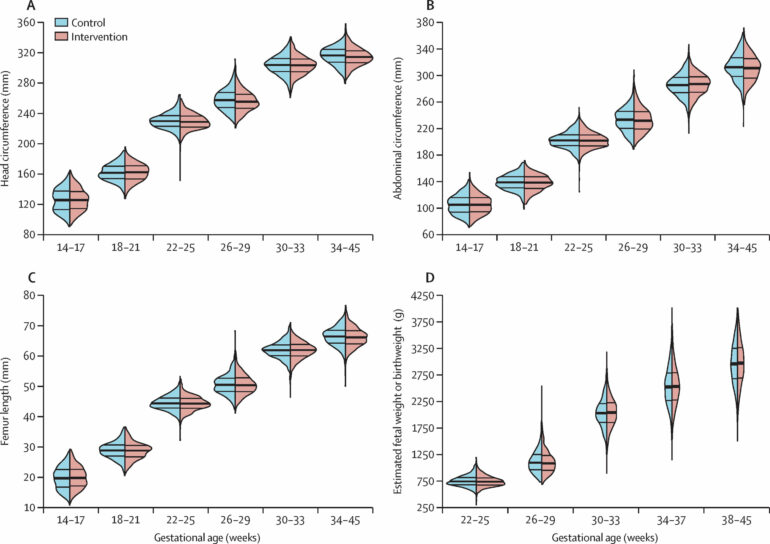In a new study, researchers from Oxford’s Nuffield Department of Women’s & Reproductive Health have found that pregnant mothers’ exposure to air pollution from indoor stoves did not affect the development of their babies in any statistically significant way, challenging conventional wisdom regarding the impact of household air pollution on fetal growth.
The study, published in The Lancet Global Health, was conducted in 3,200 households across resource-poor settings in Guatemala, India, Rwanda, and Peru, and focused on assessing the effects of reducing personal exposures to household air pollution on fetal growth in a randomized controlled trial.
Incomplete combustion of biomass fuels such as wood, crop waste, and animal dung, which are used for cooking in 36% of households worldwide, results in household air pollution. Household air pollution is estimated to be responsible for 2.3 million premature deaths and 91.5 million disability-adjusted life-years lost annually. Women, often the primary cooks at home, bear the brunt of exposure to household air pollution.
To assess the impact of air pollution reduction on fetal growth, half of the pregnant women were assigned the use of liquefied petroleum gas (LPG) stoves, resulting in a significant 66% reduction in exposure to fine particulate matter, whereas the remaining half continued the use of the habitual biomass fuels for cooking. Unlike previous studies that relied solely on birth weight, this research utilized ultrasounds to track fetal growth, providing a more nuanced understanding of the impact of air pollution on prenatal development.
However, despite this substantial reduction in exposure, researchers found no clinically meaningful differences in fetal growth between the intervention group and those who continued using biomass fuels. These results are consistent with previous findings from the same group relating to the impact of air pollution on birth weight.
The lead author, Professor William Checkley from Johns Hopkins University, noted, “While our study underscores the importance of reducing household air pollution, our findings challenge the widely held belief that such pollution significantly impacts fetal growth.”
“Our findings suggest that the link between household air pollution and poor fetal growth may be less pronounced than previously assumed. Our findings do not support the use of unventilated liquefied petroleum gas stove and fuel delivery intervention as a strategy to reduce poor fetal growth in resource-limited settings.”
Study author Professor Aris Papageorghiou from the University of Oxford added, “In this study, we undertook a detailed evaluation of fetal growth throughout pregnancy in 3,200 pregnant women in Peru, Rwanda, Guatemala, and India. The intervention was largely successful at reducing air pollution exposures, yet we did not find any benefits in fetal growth trajectories, including estimated fetal weight through birthweight.”
“This suggests that the field requires a re-think of intervention strategies that will reduce both household air pollution and improve fetal outcomes, but one based on LPG stove and free fuel is not clearly enough.”
Acknowledging the study’s limitations, researchers highlighted the possibility that interventions to reduce exposure to household air pollution may need to occur earlier in pregnancy or even before conception. Additionally, despite the significant reduction in exposure achieved by the intervention group, average prenatal exposures still exceeded the recommended guidelines for air quality three times.
More information:
William Checkley et al, Cooking with liquefied petroleum gas or biomass and fetal growth outcomes: a multi-country randomised controlled trial, The Lancet Global Health (2024). DOI: 10.1016/S2214-109X(24)00033-0
Provided by
University of Oxford
Citation:
Study improves understanding of effects of household air pollution during pregnancy (2024, April 12)



